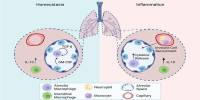Over time, research has established a link between inadequate sleep and an increased risk of cardiovascular disease. Numerous studies have shown that insufficient or poor-quality sleep is associated with a variety of cardiovascular conditions and can contribute to the development of chronic heart disease.
Do you have trouble sleeping? A new study looks at the relationship between lack of sleep and life expectancy free of cardiovascular disease. According to a new study led by researchers at the University of Sydney in collaboration with Southern Denmark University, inadequate sleep could result in two to seven years of increased heart disease risk and even premature death.
The study examined data from over 300,000 middle-aged adults from the UK Biobank and discovered that different sleep disturbances are associated with varying durations of compromised cardiovascular health later in life when compared to healthy sleepers.
Men with clinical sleep-related breathing disorders, in particular, lost nearly seven years of cardiovascular disease-free life compared to those who did not have these conditions, and women lost more than seven years. Importantly, even general poor sleep, such as insufficient sleep, insomnia complaints, snoring, going to bed late, and daytime sleepiness, is linked to a two-year loss of normal heart health in both men and women.
Sleep apnoea is well known to increase the risk of cardiovascular disease and other chronic conditions, but these findings are a wake-up call that poor sleep, in general, can pose a significant risk to heart health.
Professor Emmanuel Stamatakis
“Anyone who’s had a few rough nights of sleep knows how it can lead to bad mood and not feeling one’s best. Our research shows that, over time, regular poor sleep can lead to significantly compromised cardiovascular health in middle and old age, said Professor Emmanuel Stamatakis from the Charles Perkins Centre and Faculty of Medicine and Health, senior author of the paper in BMC Medicine.
“Sleep apnoea is well known to increase the risk of cardiovascular disease and other chronic conditions, but these findings are a wake-up call that poor sleep, in general, can pose a significant risk to heart health.”

How does snoring affect long-term health?
The researchers used an established composite sleep score, which included self-reported sleep duration, insomnia complaints, snoring, daytime sleepiness, and whether the person was a night owl or an early bird, to create three sleep categories at age 40: poor, intermediate, and healthy, and compared this to their overall cardiovascular disease-free health expectancy.
The researchers were able to compare health outcomes for self-reported sleep patterns and clinically diagnosed conditions such as sleep-related breathing disorders by combining the study participants’ self-reported data with clinical data from their doctors in the two years preceding the study. At age 40, the researchers classified participants as poor, intermediate, or healthy sleepers and compared their health outcomes in old age.
Women with poor sleep were more likely to have compromised cardiovascular health for two years longer than healthy sleepers, while men had more than two years. Women who slept in the middle lost nearly a year of disease-free life, while men lost slightly more. This means that snoring and difficulty falling or staying asleep can be indicators of future health problems.
“While the average life expectancy of the UK study participants is around 80 years, people with clinically diagnosed sleep-related breathing disorders like sleep apnoea lost over seven years of cardiovascular-disease-free life,” said Dr. Bo-Huei Huang, an epidemiologist who recently graduated from the Charles Perkins Centre and Faculty of Medicine and Health.
A wake-up call for health and policy
These findings are significant, according to Professor Peter Cistulli, ResMed Chair of Sleep Medicine at the Charles Perkins Centre and Royal North Shore Hospital, because they extend the findings of previous studies linking poor sleep to important health outcomes.
“To date, public health policy has undervalued sleep as a vital biological function.” It’s encouraging that these findings emphasize the significance of sleep and the need for it to be recognized as a pillar of good health, alongside physical activity and nutrition. “The time has come to make sleep a priority in public health policy,” said Professor Cistulli.
















